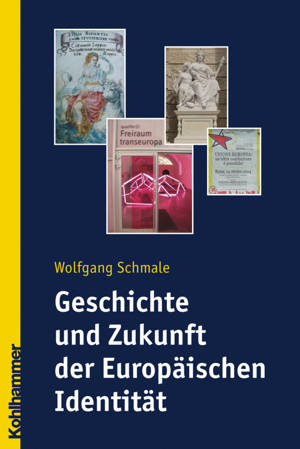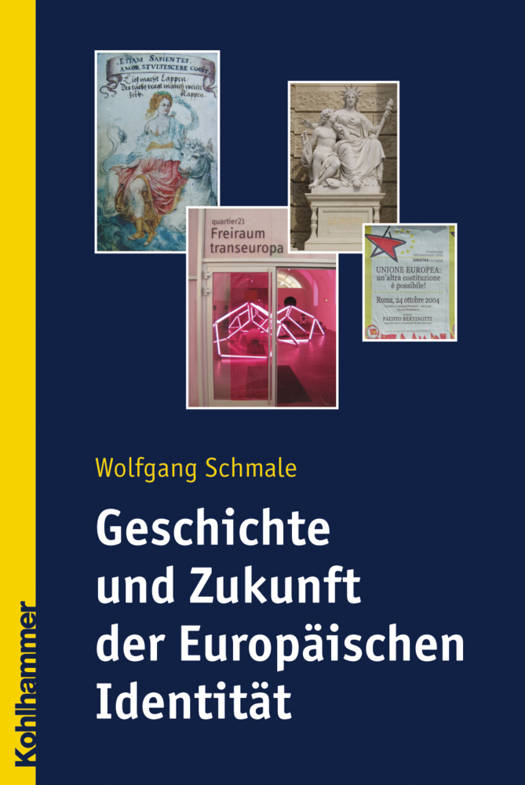
- Retrait gratuit dans votre magasin Club
- 7.000.000 titres dans notre catalogue
- Payer en toute sécurité
- Toujours un magasin près de chez vous
- Retrait gratuit dans votre magasin Club
- 7.000.0000 titres dans notre catalogue
- Payer en toute sécurité
- Toujours un magasin près de chez vous
53,45 €
+ 106 points
Description
English summary: In the early modern era European identity was expressed in the vision of Europe as a Christian republic. With the 18th century's enlightenment the idea of European culture developed. Europe's identity was its culture. The wars and crimes of the first half of the 20th century put an end to this certitude. Instead of the unifying European culture the project of European unification in the areas of economy, politics, society, education, science, culture etc. was born. Up to today no European identity or as former president of the European commission Jacques Delors said: ?Giving Europe a soul? has been created. European identity remains a challenge for the future. The integration and conflation through globalisation questions the paradigm of unity. Step by step this paradigm is replaced by that of cohesion in a globalising world. Thus European identity must rather be understood as cohesion in global plurality than as a unified entity. For the first time a history of European culture beginning with the 15th century, taking even older sources into account, until today is presented. This work gives a reliable base for examinations of future European identity. German description: In der fruhen Neuzeit druckte sich die Europaische Identitat in der Vorstellung von Europa als Christlicher Republik aus. Im 18. Jahrhundert gelangte mit der Aufklarung die Idee von Europa als Kultur zum Durchbruch. Europas Identitat war seine Kultur. Die Kriege und Verbrechen in der ersten Halfte des 20. Jahrhunderts beendeten diese Selbstgewissheit. An die Stelle der als Einheit gedachten Europaischen Kultur trat das Zukunftsprojekt Europa, namlich die im Zuge der Europaischen Integration zu schaffende Europaische Einheit, die Wirtschaft, Politik, Gesellschaft, Bildung und Wissenschaft, Kultur usw. umfasste. Bis heute ist es allerdings nicht gelungen, daraus eine Europaische Identitat zu schopfen. "Europa eine Seele geben" - so formulierte es der fruhere Prasident der Europaischen Kommission Jacques Delors. Europaische Identitat erweist sich als Zukunftsaufgabe. Die Globalisierung mit ihren Verflussigungs- und Vernetzungseffekten stellt dabei das bisher gultige Paradigma der Einheit in Frage. Schritt fur Schritt wird dieses durch das Paradigma der Koharenz in einer sich globalisierenden Welt ersetzt. Die kunftige Europaische Identitat ist daher weniger als Wesenseinheit und eher als Koharenzbildung in der europaischen und globalen Vielfalt zu verstehen. Erstmals wird hier eine "Geschichte der Europaischen Identitat" geboten, die, altere Wurzeln bedenkend, von der Mitte des 15. Jahrhunderts bis in die Gegenwart reicht. Diese Geschichte liefert ein verlassliches Fundament fur die Betrachtung der Zukunft der Europaischen Identitat.
Spécifications
Parties prenantes
- Auteur(s) :
- Editeur:
Contenu
- Nombre de pages :
- 246
- Langue:
- Allemand
Caractéristiques
- EAN:
- 9783170201002
- Date de parution :
- 10-07-08
- Format:
- Livre broché
- Format numérique:
- Trade paperback (VS)
- Dimensions :
- 155 mm x 231 mm
- Poids :
- 366 g

Les avis
Nous publions uniquement les avis qui respectent les conditions requises. Consultez nos conditions pour les avis.






